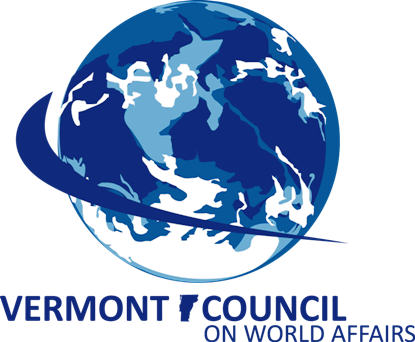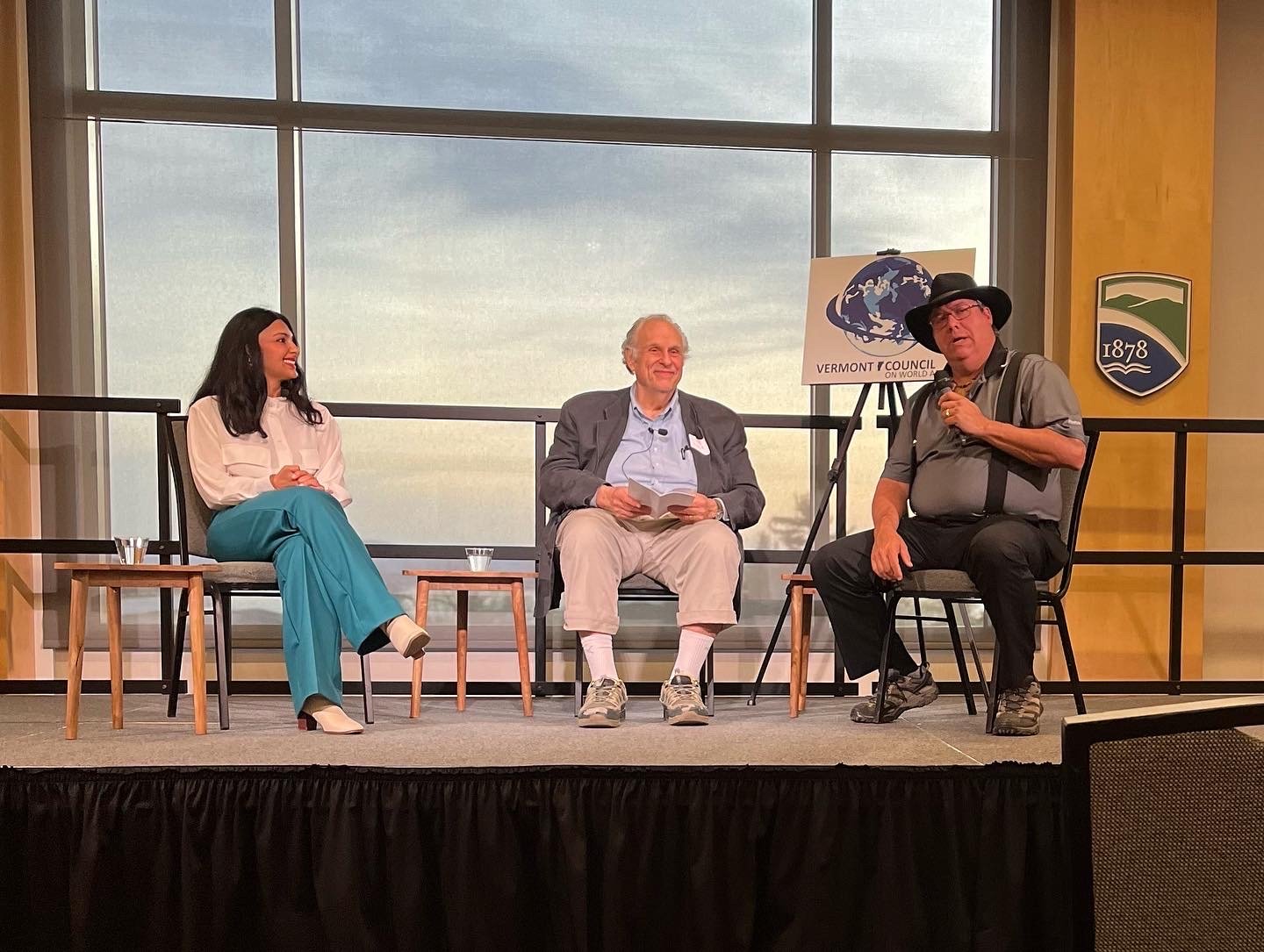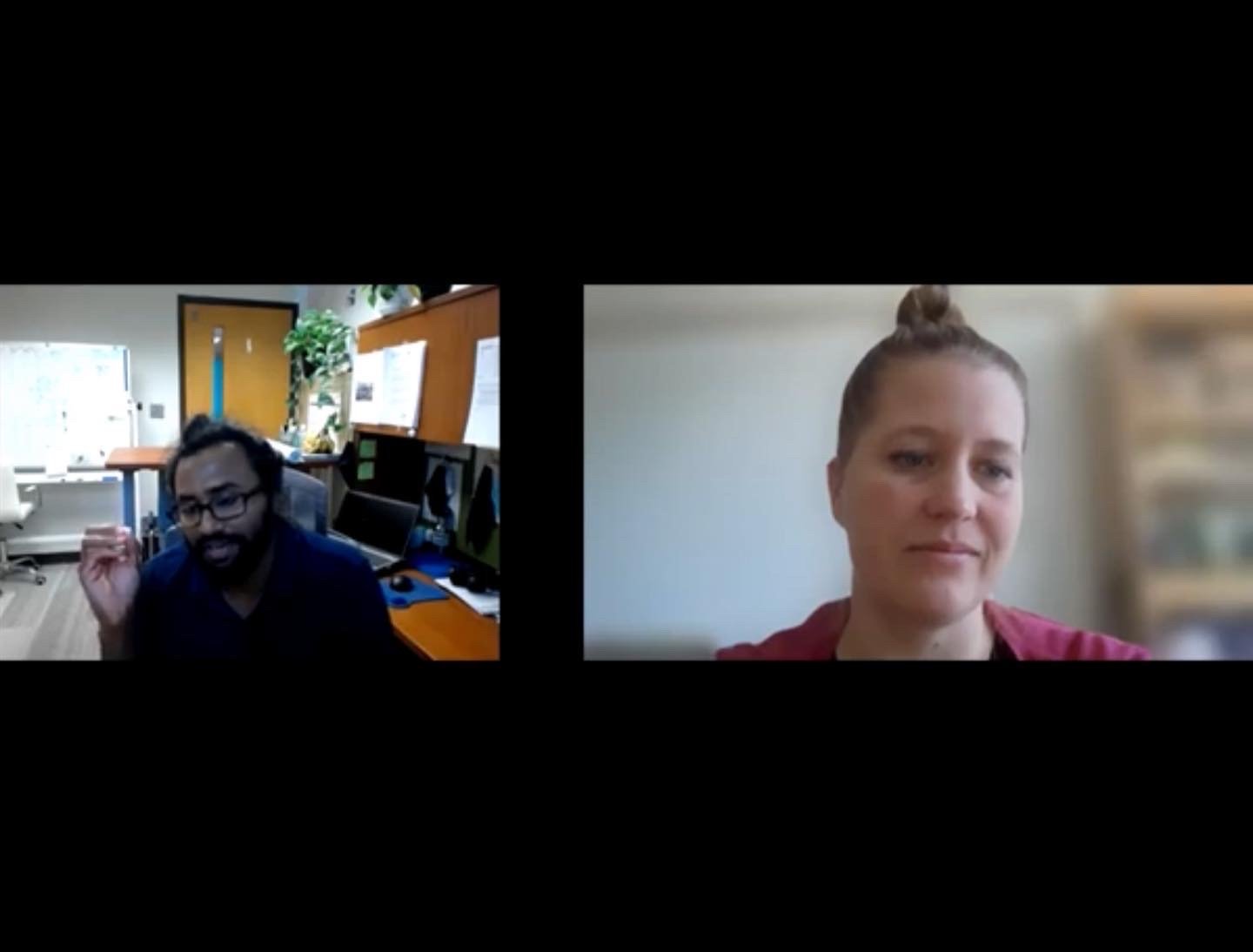Developing A More Inclusive Approach to Climate Change: VCWA Highlights Diverse Voices in Climate Change Discussion
Dilafruz Khonikboyeva and Chief Don Stevens spoke with Bill Schubart on the topic of indigenous peoples’ roles in the climate change dialogue.
The Vermont Council on World Affairs (VCWA) was pleased to host climate and sustainability experts for an all-day International Speaker Series event on May 5 titled Developing a More Inclusive Approach To Climate Change. The remote events included a diverse group of participants with a diverse set of backgrounds and areas of expertise, including moderators Araí Monteforte of Tetra Tech and Jody Prescott and Gillian Galford of the University of Vermont, as well as panelists Neha Misra of Global Energy, Adenike Oladosu of ILeadClimate, Lydia Wanjiku Kibandi of Lensational, Mrinalini Rai of Women4Biodiversity, and Eranga Galappaththi, assistant professor of geography at Virginia Tech University. The focus of this event series was the underrepresented role of marginalized communities in the solutions to climate change. The disproportionate impact created by a small number of industrial countries, the disproportionate effect on marginalized groups, and how the responses thus far to climate change have, in many ways, left these marginalized groups out of the proposed solutions remained a constant, binding theme across the discussions.
Neha Misra of Global Energy began a conversation with Araí Monteforte of Tetra Tech by connecting the legacy of colonialism to the impacts felt in climate change, highlighting how the cause has been concentrated in the Global North while the effects have been focused in the Global South. She proposed building 'an equitable renewable energy movement', stating that 'we must transition from extractive, fossil-fuels-based economic and socio-economic systems' as the current system places an undue burden on the ex-colony countries which have already suffered and were left behind under the previous paradigm. Misra proposed that solutions to climate change should be inclusive of these global communities.
The next conversation, between Adenike Oladosu of ILeadClimate, Lydia Wanjiku Kibandi of Lensational, Mrinalini Rai of Women4Biodiversity, and moderator Jody Prescott of the University of Vermont showcased the correlative and ostensibly causal relationship between the effects of climate change and gender-related inequities and conflict. The proposal that these three seemingly unconnected issues have a profound exacerbating relationship invokes a call-to-action and more comprehensive development policies. "There's a need to invest, support, strengthen and build the evidence-based on these links between gender environment and conflict," Rai proclaimed. Kibandi explained the need to document and share women's voices, especially because women provide a perspective in the communities most impacted that showcases a more complete picture, as they are most connected to the issues facing the community as a whole. "There is scientific data, but also creative data [...] Perceptions we have about regions, especially those prone to war or climate, are built by the stories we hear through the media.[...] we aim to share that unfiltered view, the realities of communities" said Kibandi.
Eranga Galappaththi, assistant professor of geography at Virginia Tech University, joined Gillian Galford of the University of Vermont for a conversation about the adaptation to social changes resulting from climate change. Galappaththi, who has been researching the impacts of climate change on indigenous communities in the arctic and in Sri Lanka, has uncovered some trends in the climate change impacts. "Because their environment and their natural resource systems are different, they experience climate change and other stresses very differently." This makes broad policymaking and one-size-fits-all approaches difficult. Galappaththi explained some of these challenges in-depth and provided experience-based analyses in order to showcase how the same crisis impacts indigenous communities on opposite ends of the earth differently, despite both being impacted in ways that share some common features.
The evening reception continued on the subject of indigenous impacts of climate change across the world. The evening keynote address took place at Champlain College, with a panel discussion hosted by Bill Schubart of VT Digger titled Indigenous Climate Justice: A Local and Global Perspective. The panelists showcased the vast impact of climate change on indigenous communities and highlighted much of the interconnectedness that can be seen as a result of the crisis. Chief Don Stevens, one of the panelists, is the Chief of the Nulhegan Band of the Coosuk-Abenaki Nation, residing here in Vermont, while Dilafruz Khonikboyeva, speaking on behalf of Women of Color Advancing Peace, Security, and Conflict Transformation, works for USAID under the Biden Administration and hails from Tajikistan. "There has to be a space for women and women of color in that conversation because they're disproportionately affected. Yet they're the ones who are not at the table," said Khonikboyeva, highlighting the disparity between the groups discussed throughout the day's events. She also provided many shocking statistics on the burden that indigenous peoples must carry in this crisis by protecting the most wildlife and forest space. Chief Don Stevens implored the audience to return to more sustainable lifestyles, explaining many of the ways that indigenous people live in relative harmony with the land and resources. "Please either help your children or help yourself reconnect to the source. Whether it be food sources, spiritual sources, or whatever source it is, we need people to be intimately connected to that source," he proclaimed.
Thank you to the 2022 International Speaker Series sponsor, National Life Group, Hilton Garden Inn, Tetra Tech and Suncommon.
Celebrating 70 years of promoting awareness and understanding of the world and its people through education and engagement. The Vermont Council on World Affairs brings Vermont the world and the world to Vermont.





